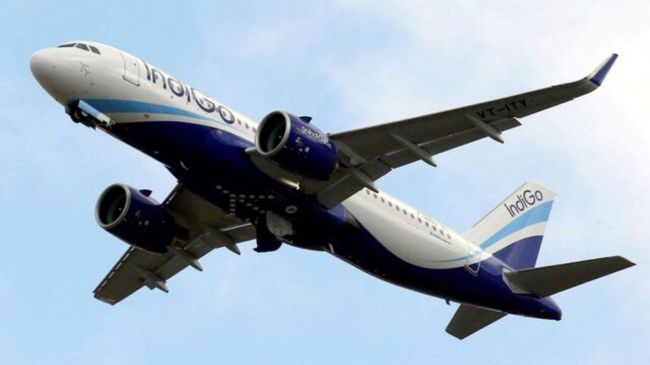Opinion Direct flights have restarted, but India-China ties will remain fragile until border is settled
Given that the border has the potential to derail the relationship and render any progress futile, it is surprising that there appears to be no great urgency to resolve it
 The Indian carrier IndiGo has started direct flights to the Chinese city of Guangzhou (Reuters photo)
The Indian carrier IndiGo has started direct flights to the Chinese city of Guangzhou (Reuters photo) On October 26, India and China resumed direct flights, which had been suspended following the outbreak of the Covid pandemic and remained so, with the Galwan clashes in 2020 freezing bilateral relations to a large extent.
Now, the Indian carrier IndiGo has started direct flights to the Chinese city of Guangzhou. China Eastern Airlines, too, has announced that it will launch a direct flight between Shanghai and Delhi from November 9, operating three times a week. According to Qin Yong, a senior Chinese consular official, the resumption of direct flights marked “a very important day for the India–China relationship”. The Indian government has said that this will help enhance “people-to-people” contact and support the normalisation of ties. Air India, too, is set to start flights to China by the end of 2025. The restoration of connectivity is the product of multiple rounds of talks and follows Prime Minister Narendra Modi’s visit to China for the Shanghai Cooperation Organisation meeting.
The resumption of direct flights removes many of the challenges faced by Indian and Chinese travellers, who had to take multiple connecting flights to reach their destinations. Before air connectivity was suspended in 2019, the two sides operated around 2,600 flights annually, according to travel data provider OAG. India has also begun allowing Chinese tourists this year and is in the process of approving the entry of Chinese goods into Indian markets. According to a senior government official, “We will soon begin issuing and renewing licences for suppliers from several countries, including China.”
However, the fundamental challenges in the relationship persist. Chinese media have emphasised that the resumption of flights will boost Indian tourism as more Chinese citizens will be able to travel, but mutual mistrust remains. An article in the Global Times, quoting a representative of a Chinese enterprise operating in India, argued that “China is showing a willingness to deepen economic cooperation, but India’s attitude toward Chinese-funded companies has not fundamentally changed”.
Settled border is India’s priority
Since October 2024, the two sides have managed to build some positive momentum in their relationship. The major and fundamental challenge is still the unresolved border. Given that the border has the potential to derail the relationship and render any progress futile, it is surprising that there appears to be no great urgency to resolve it. Since Galwan, the Indian side has repeatedly emphasised the need to settle it at the earliest, while Beijing continues to focus on other aspects of the relationship. For India, a settled border, free of conflict, is the priority, while Beijing seems to be looking at fewer restrictions vis-a-vis the large Indian market, and other economic opportunities.
Historically, too, the normalisation of relations in 1988, following Rajiv Gandhi’s visit to China, had been based on the hope that economic engagement and people-to-people contact would provide the impetus for better ties. Yet, the last many years have shown that no degree of interdependence or connectivity — despite India–China bilateral trade standing at $130 billion — can build trust or reduce the centrality of the border. Sovereignty and nationalism further complicate the issue. Until the border is settled and trust established, peace built through trade and connectivity will remain fragile.
Following the meeting between US President Donald Trump and Chinese President Xi Jinping in Busan, South Korea, the invocation of the “G2” concept by the United States underscored the interdependence between Beijing and Washington. According to Trump, “My G2 meeting with President Xi of China was a great one for both of our countries. This meeting will lead to everlasting peace and success. God bless both China and the US.” Meanwhile, US tariffs on Indian goods remain at 50 per cent, while those on China have been reduced to 47 per cent — lower than India’s.
The realities of trade and interdependence cannot be ignored in the India–China relationship. In an interdependent world, interaction is essential, but sovereignty and security continue to drive states’ foreign policies. People-to-people exchanges have not, by themselves, strengthened India–China ties. For genuine thaw and lasting trust, India and China must not only interact but also understand each other and work together to resolve their differences.
The writer is associate professor, O P Jindal Global University






